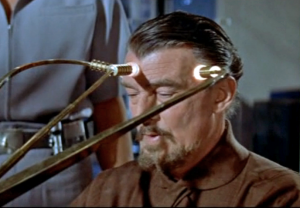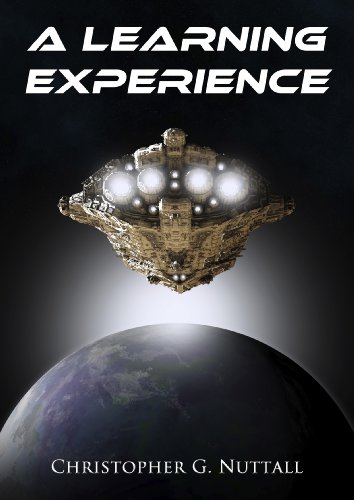
Walter Pidgeon tries on the Krell Brain Booster in the 1956 Sci-Fi classic “Forbidden Planet.” Though it increased his already considerable intelligence to astounding levels, it also unleashed the dark side in his subconscious. Let’s hope smartphones use their power for good, rather than evil.(photo: MGM)
IBM brought a touchscreen phone named Simon with more than phone functions to the market in 1994. Nokia produced the Nokia 9000, a clam-shell phone/PDA with a keyboard in 1996, which was, at the time, their best selling phone. But it wasn’t until the 1997 that Nokia called the GS 88 “Penelope,” the successor to the 9000 a “smartphone,” coining the term that would describe all phones with computing capabilities built in from then on. That’s the official story, and it’s factual, but I think it’s off the mark.
The Way of The Dinosaurs
The GS 88 was smart, certainly, and a phone, arguably, but its clamshell with a keyboard format showed its mini-computer heritage, coming out of “palmtop” computers like the HP100 LX and the Psion MXs, which were trying hard to be laptop computers you could fit in a pocket, though it had to be a big pocket. They were an attempt to get around the size and weight of early laptops in a time when the concept of something like an ultra-book was still in the realm of science fiction. While palmtop computers were a good idea, they never really caught on, and represent a branch of computer evolution that went the way of the dinosaurs. Like many techie folks, I’m fond of dinosaurs, and I was very fond of my palmtop computer, and sorry to see it die off. But it did, and we (mostly) moved on.
Continue reading


